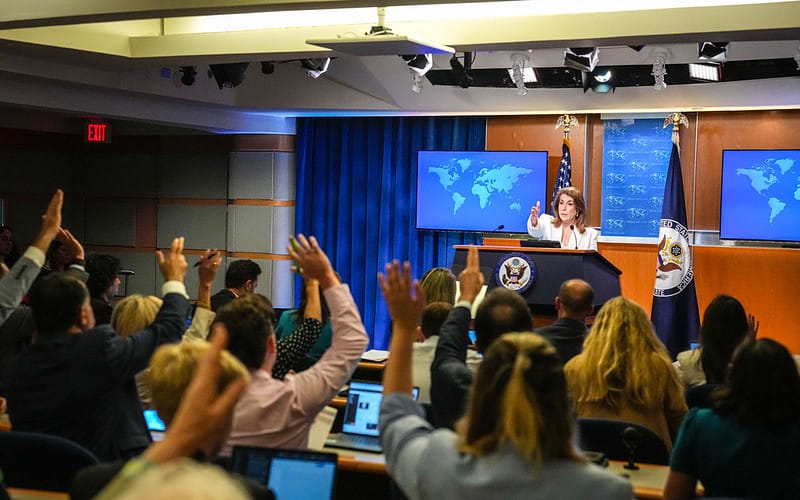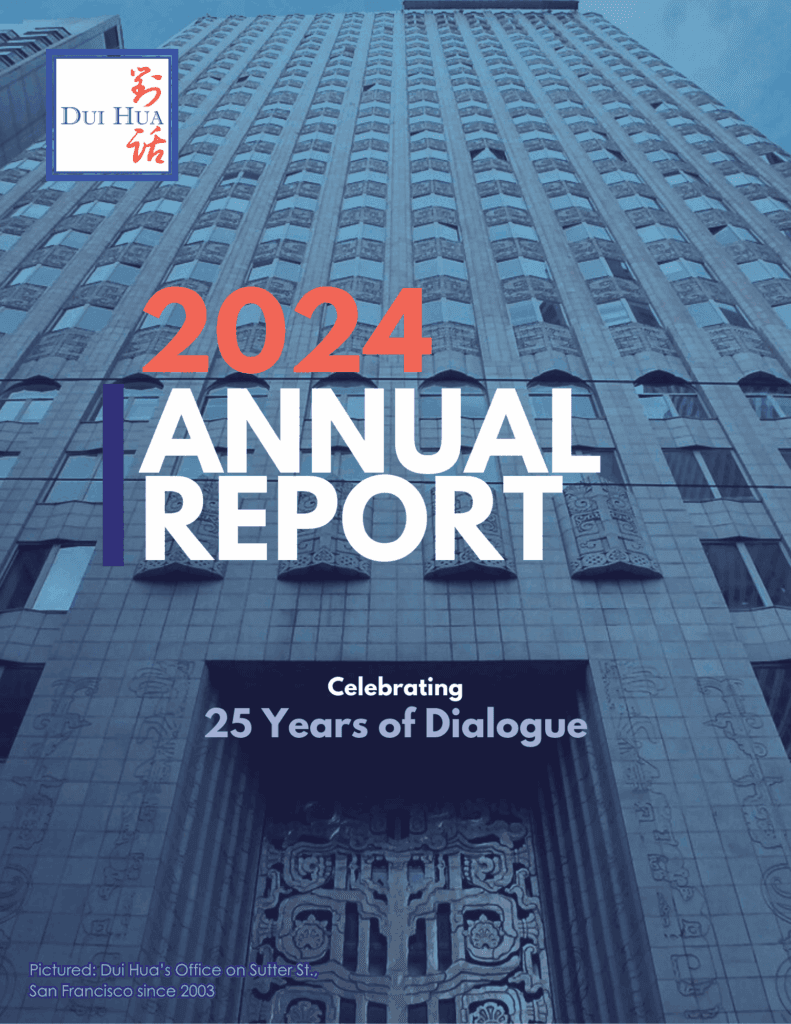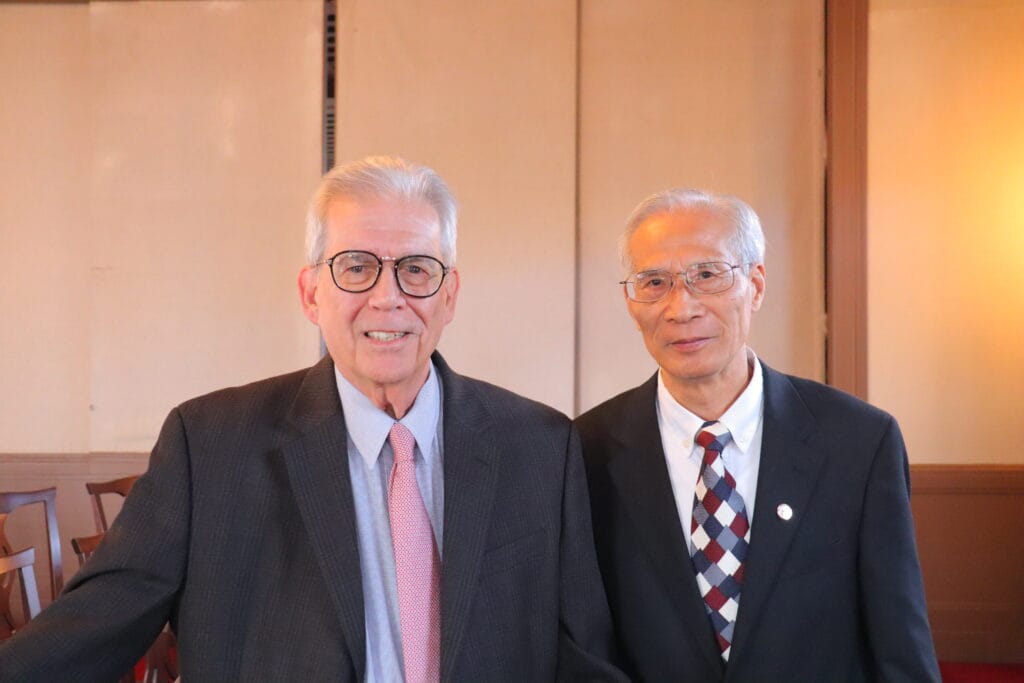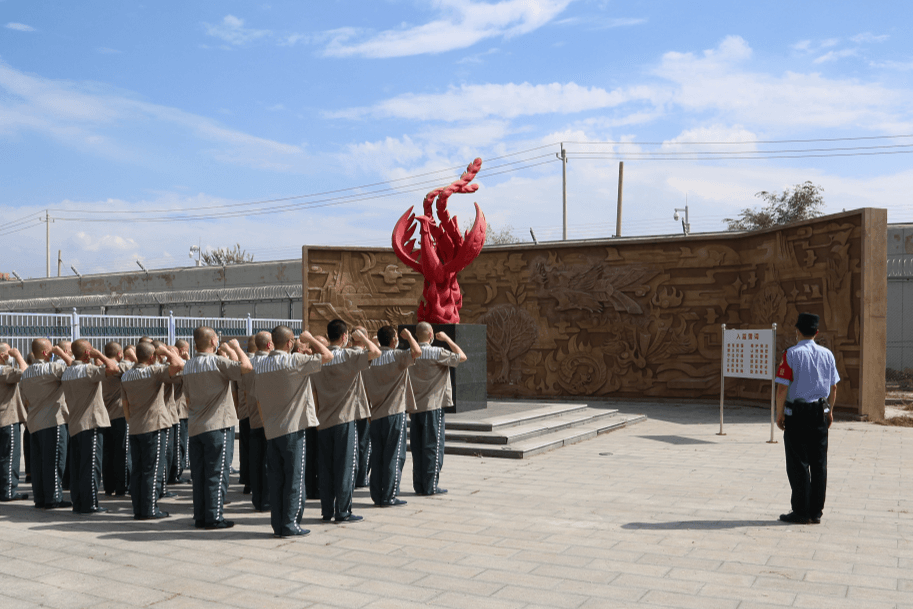Could spring be in the air for U.S.-China ties? Remarks made by both sides following the call between President Xi and President Trump on September 19 glowed with goodwill. In our Fall Digest, we review what the U.S. is holding the line on in human rights and what it’s willing to let go of to fit an America First agenda.
EVENT
U.S. State Department’s 2024 Country Reports on Human Rights Practices: The Shift to Targeted Pressure

The U.S. Department of State’s (DoS) 2024 Country Reports on Human Rights Practices (HRR), released on August 12, 2025, marked a departure from previous editions in both scope and approach. According to the media, the report’s release was delayed so that a previous draft could be reworked to line up with the administration’s ‘America First’ policy framework. Secretary of State Marco Rubio bypassed traditional presentation protocols and did not submit a written commentary or make formal press remarks. Instead, the HRR was released directly to reporters with department spokesperson Tammy Bruce fielding questions during a routine briefing.
Reorientation
Bruce described the new structure as “responsive to the legislative mandates…. rather than an expansive list of politically biased demands and assertions.” In other words, it did the bare minimum required by Congress. Comprehensive details of countries with documented human rights abuses were scaled back. Instead, focus was re-directed toward traditional allies France, Germany and the U.K. for curtailing freedom of speech which likely raised some eyebrows.
China: Selected Focus
The China analysis, compressed from 91 pages in 2023 to 42 pages, maintained its critical stance, with specific focus on the systemic persecution of Uyghurs in almost all sections of the main report. This targeted emphasis aligns with Rubio’s hawkish position on China — in press interviews he’s called China an adversary nation state and the U.S.’s number one geopolitical foe. His advocacy of Uyghurs began in 2018 after news emerged that over a million Uyghurs were in extra-judicial internment camps.

The U.S. first used the word “genocide” in 2020 to describe the situation in Xinjiang. It was in 2023 that the DoS began its executive summary with “Genocide”.
The 2024 report did the same. And it sustained criticism of China’s judicial opacity, tight control over media, forced labor programs particularly affecting Uyghurs as well as transnational repression targeting diasporas and students abroad and dissidents through surveillance. Of the 44 names of human rights defenders singled out, Dui Hua has submitted 22 to the Chinese government on its lists.
Gone from the analysis was a heading that had been a fixture for 14 years — Political Prisoners and Detainees. Omitted also were exit bans which are becoming an issue for foreigners in China and have been used against dissidents, activists and lawyers.
One area of the assessment which appeared to be positive was a single sentence — almost begrudgingly written — on child marriage: “The legal minimum age for marriage was 22 for men and 20 for women; authorities effectively enforced the law.”
Hong Kong’s Expanding Crackdown
The Hong Kong chapter centered on the expansion of the National Security Law (NSL) in the form of the Safeguarding National Security Ordinance (SNSO/Article 23). The assessment called out Hong Kong’s use of both laws to clamp down on vaguely defined forms of sedition predating the NSL enactment, to issue overseas arrest warrants and apply stringent bail conditions. The mass sentencing of 45 pro-democracy activists and the mistreatment of Jimmy Lai were highlighted. Trump said he would raise Lai’s case during tariff negotiations.
China’s Response
A day after, the U.S. earned the predictable rebuke from the Office of China’s Foreign Ministry in Hong Kong, who dismissed the assessment as disregarding facts. The Global Times said the HRR “fully exposes the US politicizing and instrumentalizing human rights issues in a despicable attempt to contain China’s development by exploiting Hong Kong.” On August 17, China’s State Council released its 2024 report on human rights in the United States, calling American style democracy “A Game of Thrones carnival.”
Shifting Winds
The HRR was released a day after the White House issued a statement on China-U.S. trade talks on August 11. The timing, together with this streamlined version of the HRR, using targeted instead of comprehensive analysis and low-key distribution to reporters, represents a more transactional approach to diplomacy.

This is evident in Rubio’s limited engagement with China – only two documented discussions with Director of the CCP Central Foreign Affairs Commission and Foreign Minister Wang Yi in 2025 – while Treasury Secretary Scott Bessent and Vice Minister He Lifeng have held multiday discussions, including the latest on September 14th. These talks led to the call on September 19th between Xi Jinping and Donald Trump. The two leaders are now expected to meet in South Korea at the Asia Pacific Economic Cooperation forum in October.

On July 10, the DoS announced it had begun another round of layoffs, this time over 3,400 employees, including those who worked in the foreign assistance and political affairs divisions. The news could not have come at a worse time. In the following weeks, the news of a U.S. bank executive and a U.S. government employee who had been under exit bans for months shocked the public.
These layoffs at the DoS, including losing staff with crucial foreign language skills such as Mandarin Chinese, could impedes its ability to aid citizens in China.
Dui Hua has learned directly from families of U.S. citizens under coercive measures in China about the impact of the DoS cuts. In one major city on the east coast, the understaffed American Citizen Service (ACS) has been delaying what were monthly consular visits to imprisoned American citizens by weeks or sometimes months. The duration of visits also reportedly has to been cut short. Junior staff morale is understandably low.
The bank executive has since been released and returned on September 16, according to the U.S. Special Presidential Envoy for Hostage Affairs. However, there are many American citizen’s fates which are still in legal limbo. Dui Hua has estimated about 30 American citizens are subject to exit bans.
PUBLICATIONS HIGHLIGHTS
DUI HUA 2024 ANNUAL REPORT

Befitting our 25th anniversary, 2024 was an eventful year for us. In September and November 2024, American citizens on whose cases Dui Hua worked for many years, were released and returned home to their loved ones in the United States, the result of a first-ever prisoner swap with China. Read the report here
JOHN KAMM REMEMBERS
From John Kamm Remembers, a series written by Dui Hua’s founder recounting his advocacy for prisoners in China.
Pastor David Lin: A Servant of the Lord

On September 15, 2024, Pastor David Lin walked out of a Chinese prison in freedom. On the anniversary of his release, we tell the story of Dui Hua’s involvement. Read more
No Way Out

John recounts an unsettling visit to Beijing Number Two Prison in 2001 and learns that even in a hopeless and oppressive environment, opportunities surface. Read more
PRISONER UPDATES
Veteran democracy activist sentenced for third time in Gansu
Veteran democracy activist Long Kehai (龙克海) was sentenced to two and a half years on July 19 by the Hui County People’s Court for picking quarrels and provoking trouble (PQPT) — a pocket crime often used against dissidents and activists. Read more
Leaders of house churches facing legal challenges in Anhui, Zhejiang, and Shanxi
Authorities continue to criminalize house churches that refuse to comply with official religious regulations. Read more
PRESS RELEASE
Dui Hua Decries Exit Ban on Seven-Year-Old American Citizen. Read the press release
Subscribe here to receive Dui Hua publications by email.
